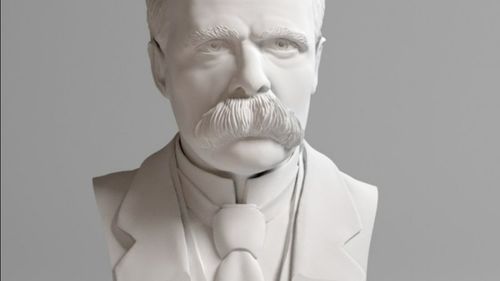Tradition, the double edged sword
Aug 22, 2023 · 2 mins read
0
Share

Introduction: How is tradition a double-edged sword? Why do human beings conform so readily - and what does that have to do with Zebra stripes? Nietzsche takes on all these questions and more in an underrated early work, The Dawn of Day. Dig in:
Save
Share
When the primitive man roamed the Earth, it was the “dread of the unintelligbile” which supercharged our brain development. We encountered seasons, animals, and situations we couldn’t grasp, and this became the painful “training ground of the intellect.”
Save
Share
We misunderstand custom when we think of it as some mix of drudgery and slavery. Custom and tradition were originally our arc in the ceaseless flood of chaos. Nietzsche: “The great proposition with which civilization begins: any custom is better than no custom at all.”
Save
Share
Nietzsche the evolutionary biologist: A man “adapts himself to the opinions of the time” for the same reason zebras have stripes - to mix in with others and avoid the predators. Our urge to mimic ideas and conform comes from the “depths of the animal world.
Save
Share
Ancient man v/s Modern man: Today we do what sounds “most reasonable” but Nietzsche wrote that ancient men judged actions by the yardstick of energy. They favored acts which “imbued the soul with courage and hope.” A “cheerful readiness” for action was thought superior to logic.
Save
Share
Your feelings were once your grandfather’s rational judgements. Nietzsche writes: “Trusting in our feelings simply means obeying our grandfather and grandmother more than the Gods within ourselves: our reason and experience.” To over-rely on your gut is to live in the past.
Save
Share
Nietzsche: “Words block up our path.” Words are labels - more often than not, incorrect labels. Common words become the familiar tracks beyond which our mind refuses to venture. Human speech is full of “petrified words and mummified conceptions” that hinder understanding.
Save
Share
The most important thing humans can do that other animals cannot: make promises. We've figured out how to turn momentary despair into "eternal mourning," but also to turn one small word into "eternal obligation" and fleeting passions into the sacred bond of marriage.
Save
Share
The human ability to turn the temporary into the permanent unlocks achievements which are impossible otherwise. If we only relied on in-the-moment whims like other animals, we could never have architecture that takes decades to build, technology and much else we rely on.
Save
Share
Conclusion: Nietzsche shows the value of customs while recognizing the importance of breaking free from them. He shows how pure logic cannot be the only yardstick of action but advices against pure gut-level decisions too.
Keep exploring Nietzsche's nuanced worldview here...
Save
Share
0